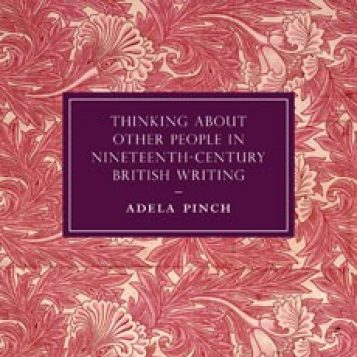Thinking about Other People in Nineteenth-Century British Writing

Adela Pinch
Nineteenth-century life and literature are full of strange accounts that describe the act of one person thinking about another as an ethically problematic, sometimes even a dangerously powerful thing to do. Adela Pinch explains why, when, and under what conditions it is possible, or desirable, to believe that thinking about another person could affect them. She explains why nineteenth century British writers - poets, novelists, philosophers, psychologists, devotees of the occult - were both attracted to and repulsed by radical or substantial notions of purely mental relations between persons, and why they moralized about the practice of thinking about other people in interesting ways. Working at the intersection of literary studies and philosophy, this book both sheds new light on a neglected aspect of Victorian literature and thought, and explores the consequences of, and the value placed on, this strand of thinking about thinking.• Offers important new insights into nineteenth-century ideas about the power of thought in philosophy, literature and the occult • Includes substantial, persuasive new interpretations of key texts in Victorian literature, by authors such as Elizabeth Barrett Browning, Coventry Patmore, George Meredith and George Eliot • Contains detailed material about neglected nineteenth-century philosophers and pseudo-philosophical theorists such as James Frederick Ferrier, Shadworth Hodgson and Mary Everest Boole

